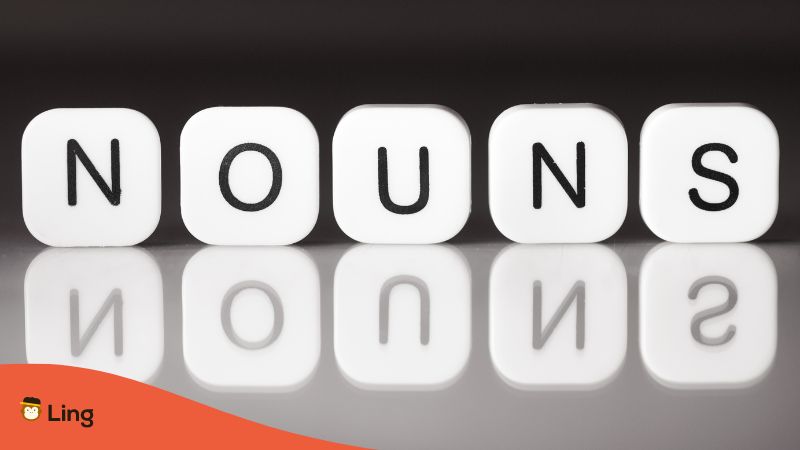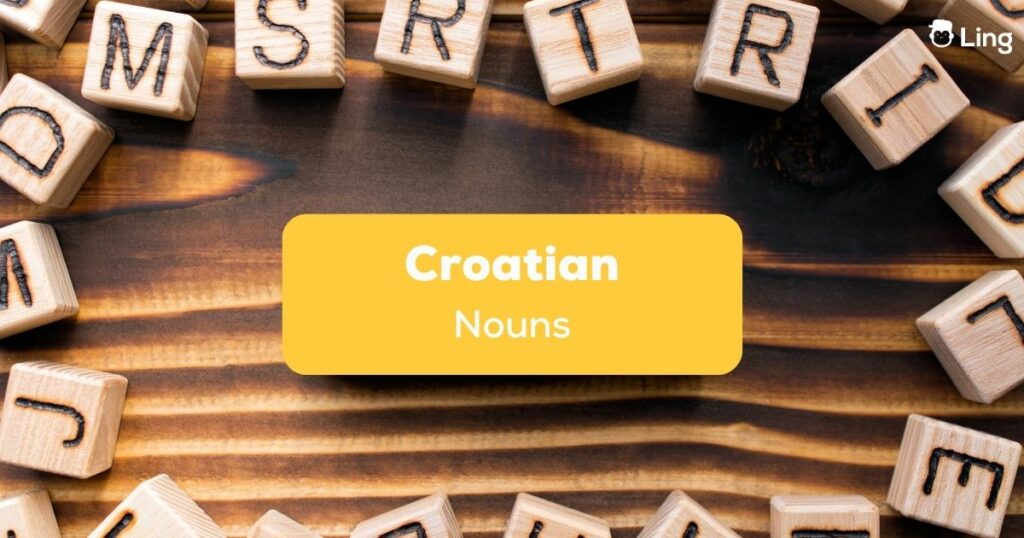Did you know there are seven different cases for nouns in the Croatian language? Surprising, right?! Well, don’t let that intimidate you. Welcome to your number one solution to decode the enigmatic world of Croatian nouns.
Nouns in every language are crucial—they’re the bread and butter of our vocabulary, our sentences, the names of our world. And Croatian is no less! But wait! Befriending Croatian nouns can sometimes feel like cracking a Kasuni fort. Exciting yet challenging, isn’t it?
So, grab yourself a cup of coffee (or better yet, a Croatian kava), sit back, and let’s get talking in Croatian.
The Basics Of Croatian Nouns
So, what in the world are Croatian nouns, you ask? Simple! They’re a bit like the general nouns we use in English – words that represent people, places, things, or abstract ideas or concepts. But don’t be fooled – they’ve got a few unique tricks up their sleeves that we don’t see in English. Intriguing, right?
Let’s explore these differences to understand such nouns more deeply.
Noun Gender
If you thought nouns were just, well, nouns, buckle up because the Croatian language adds some flavor to the mix with gender. Yes, you read it right – gender!
Masculine Gender Nouns
First up, let’s meet the masculine nouns. And no, they don’t all have beards and deep voices. In Croatian, words like pas (dog) are considered masculine. From furry friends to your favorite bus, you’ll find a wide range of objects in this category.
Here are other examples of masculine Croatian nouns.
Feminine Gender Nouns
Next, we have the ladies of the noun world – the feminine nouns. Holding the banner of femininity is our little friend mačka (cat). It’s not just cute felines, though. Lots of other things, albeit sans whiskers, fall into this category, too, including the following nouns.
Neuter Gender Nouns
Last but not least, of course, we have neuter nouns, which offer a perfect blend of linguistics. Dijete (child), for example, is a neuter noun. It’s interesting to see how things shake up when genders are thrown into the noun mix, right?
Here are some examples of neuter Croatian nouns.
Cases
Now, let’s dive into the seven cases of Croatian nouns. Yep, you read that right – in Croatian, nouns have seven different cases! But don’t worry. We’ll make learning them super easy and fun. So, let’s get started!
Nominative (Nominativ)
The Nominative case is all about the subject of a sentence, or the “who” or “what” is doing the action. For example:
- Djevojka (girl) čita knjigu (reads a book)
Did you see how the word djevojka is the one doing the reading? That’s our Nominative noun!
Genitive (Genitiv)
The Genitive case answers the questions “whose” or “of what.” It often shows possession or belonging. Check out this example:
- Knjiga djevojke (girl’s book) – it’s the girl’s book, so djevojke is in the Genitive case.
Dative (Dativ)
In the Dative case, we’re usually talking about giving or receiving something. It answers the question “to whom” or “to what.” Here’s an example:
- Dajem knjigu djevojci (I’m giving the book to the girl) – the book goes “to the girl,” so djevojci is in the Dative case.
Accusative (Akuzativ)
The Accusative case is for the direct object of a sentence. In other words, it represents the “whom” or “what” an action is being done or refers back to. Like so:
- Vidim djevojku (I see the girl) – we’re seeing the girl, which makes her our Accusative noun!
Vocative (Vokativ)
This case is used for calling someone or getting their attention. It’s like shouting, “Hey you!” Here’s an example:
- Djevojko! (Hey, girl!) – we’re calling the girl, so djevojko is in the Vocative case.

Locative (Lokativ)
With the Locative case, we’re talking about a location – “at” or “on” whom or what. For example:
- Razgovaramo o djevojci (We’re talking about the girl) – since we’re talking about the girl, the noun djevojci is in the Locative case.
Instrumental (Instrumental)
The Instrumental case deals with nouns used as a means or instrument to do something. It answers “with who” or “what.” Just like this:
- Idem u kino s djevojkom (I’m going to the movies with the girl) – we’re going with the girl, so djevojkom is in the Instrumental case.
Plurals
Like many of its Slavic siblings, Croatian forms plurals based on gender. Yes, you heard right. Gender plays a big role, almost like setting up a party; you need to know who you are inviting.
- For masculine nouns, in most cases, you just add ‘-i’ to the end. So ‘pas’ (dog) would become ‘psi’ (dogs). How about that!
- For feminine nouns, we typically add ‘-e.’ So the plural form of ‘mačka’ (cat) would be ‘mačke’ (cats). Now you can talk about more than one cat at the dinner table!
- With neuter nouns, things get even easier. The correct form usually stays the same as the singular. So ‘dijete’ (child) stays ‘dijete’ for several kids. Handy, huh?
Easy peasy! It’s just like learning to juggle. Once you get the hang of it, it’s a piece of cake. Just remember the different endings.
Croatian Nouns Aren’t So Scary!
That’s it, folks! You’ve just completed our #1 Easy Guide to Understanding Croatian Nouns. Who knew that getting to grips with the mysterious world of Croatian nouns could be so easy and enjoyable?
So, keep this guide handy and look out for more lessons. Dip into it whenever you need. As you converse more with Croatian speakers and practice your newfound grammar knowledge, you’ll feel more confident. Before you know it, you’ll be chatting with locals and tossing out nouns like a true Croatian pro!
Learn Croatian With Ling
Ready to continue your language learning journey? There’s an app for that! Download the Ling app now for a fun, interactive language learning experience. Whether it’s Croatian nouns you’re tackling or Cantonese phrases. Ling has got you covered. Don’t wait. Start exploring new languages with the Ling app pronto.
































































